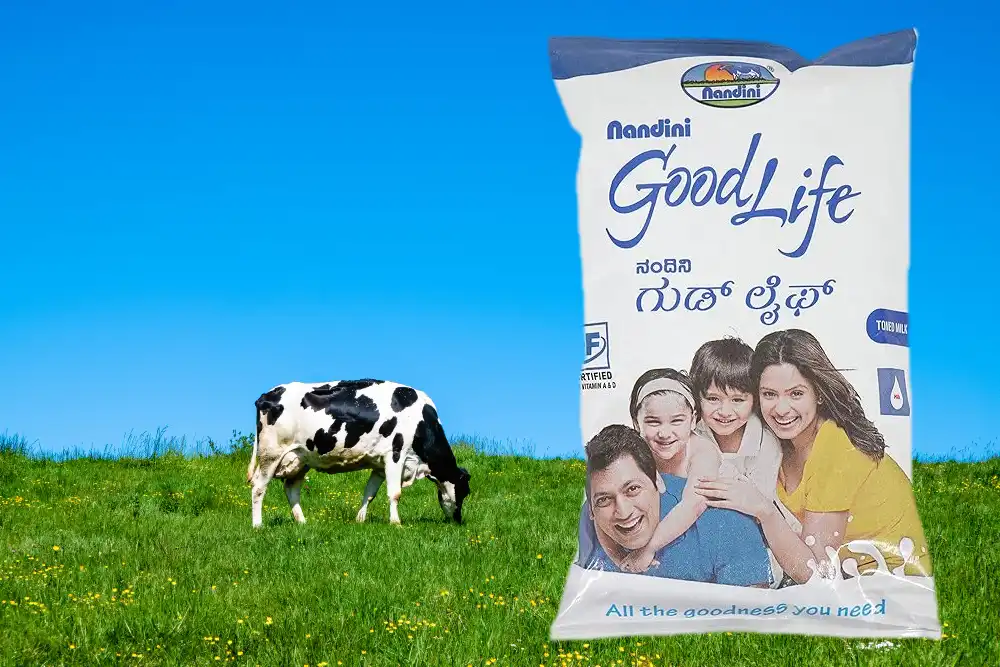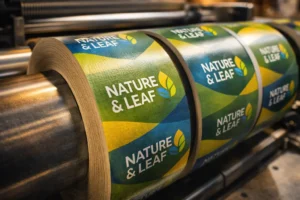Rise of Compostable Packaging in India’s Dairy Sector: KMF’s Eco-Friendly Nandini Milk Sachets
Introduction
India’s dairy sector produces millions of plastic milk packets daily, creating significant environmental waste. The Karnataka Milk Federation (KMF) has taken a bold step forward by introducing compostable milk sachets for its popular Nandini brand. Made from corn starch, sugarcane, and other plant-based materials, these sachets break down naturally within 90 days—turning into organic compost instead of adding to landfill waste.
As Bengaluru alone consumes 20–25 lakh milk packets daily, KMF’s innovation could drastically reduce single-use plastic pollution in the dairy industry.
Why Compostable Packaging Matters for Dairy Businesses
- Environmental benefits – Cuts plastic waste and supports India’s plastic ban initiatives.
- Consumer appeal – Eco-conscious buyers increasingly choose sustainable brands.
- Cost efficiency in the long term – Reduces future waste management costs.
- Compliance – Aligns with emerging packaging regulations in India.
How KMF’s Eco-Friendly Sachets Work
- Material composition – Made from renewable plant-based polymers.
- Strength & durability – Matches the performance of regular plastic in sealing and transport.
- Biodegradability – Fully decomposes in composting conditions within 90 days.
- Safe disposal – Breaks down into non-toxic components usable as organic fertilizer.
Lessons for Indian SMBs in Packaging
Small dairy cooperatives, local distributors, and packaging suppliers can adopt this model by:
- Partnering with suppliers of compostable films.
- Testing product shelf life with eco-packaging.
- Using eco-friendly branding to boost sales.
Recommended Packaging Solutions on Amazon.in
As an Amazon Associate, we earn from qualifying purchases.
- BioPak Compostable Stand-Up Pouches – Ideal for dairy powder or snacks.
- EcoGreen Biodegradable Carry Bags – Plant-based, sturdy bags.
- Cornstarch Food Packaging Wrap – For fresh produce and dairy.
- EarthSafe Biodegradable Ziplock Bags – Reusable and compostable.
- Compostable Heat Seal Pouches – For powders and liquids.
Related Reads from PackagingSeller.com
- Eco-Friendly Food Packaging Options for Indian Restaurants & Takeaways
- Why Beautiful Sustainable Packaging Wins in 2025
- FMCG Printing & Packaging: What, How & Why Explained
FAQs
1. How are compostable milk packets different from biodegradable ones?
Compostable packets fully break down into organic matter, while biodegradable may leave residues.
2. Can compostable milk sachets be stored in the same way as plastic?
Yes, they match plastic in barrier properties and durability.
3. Are these sachets more expensive?
Currently slightly higher in cost, but prices may drop with large-scale adoption.
4. How do consumers dispose of them?
They should be added to compost bins or municipal organic waste systems.
5. Will this affect milk shelf life?
No, when properly manufactured, compostable films maintain shelf stability.








4 Responses
This post was very useful for me.
I appreciate the thoroughness.